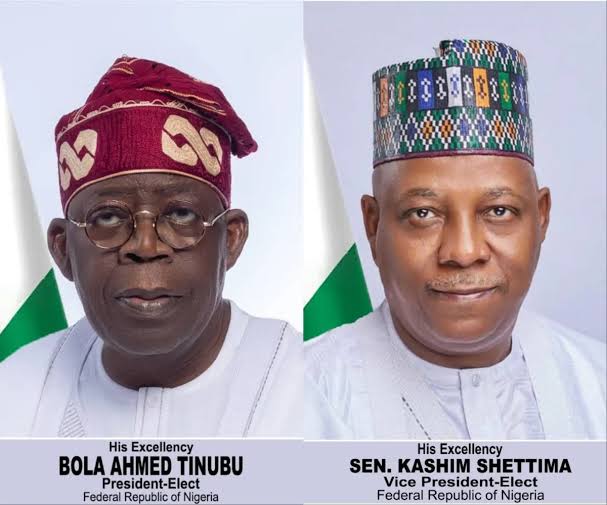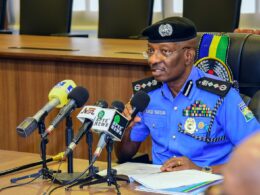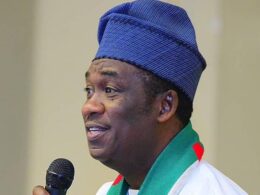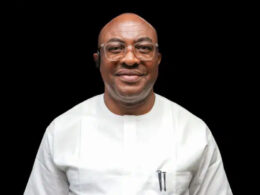The simultaneous absence of both President Bola Tinubu and Vice President Kashim Shettima has raised significant concerns among citizens and political analysts alike.
Tinubu has been on leave in the United Kingdom and most recently in Paris, France, Shettima embarked on an official visit to Sweden just as the nation was grappling with critical economic and security challenges. This dual absence has led to widespread anxiety regarding the governance of the country and who is effectively in charge during this crucial period.
Constitutional Context
The Nigerian Constitution does not explicitly prohibit the President and Vice President from being absent at the same time. However, this situation is viewed as less than ideal for a nation facing numerous pressing issues. The absence of both leaders raises questions about accountability and decision-making at the highest levels of government. Many citizens are left wondering who is steering the ship when both the captain and first mate are away.
Former Vice President Atiku Abubakar previously highlighted similar concerns when both Tinubu and Shettima were out of the country in May. He took to social media to ask, “Who is in charge of the government at this point, or is it right to assume that we are on autopil
Pressing issues
One of the most pressing issues facing Nigeria is its economy, which has been under strain from various factors including inflation, currency fluctuations, and rising fuel prices. The recent surge in fuel costs has particularly alarmed citizens. In Lagos, fuel prices have skyrocketed to ₦998 per litre, up from ₦855, while Abuja sees prices reaching ₦1,030 per litre compared to ₦897 months back and Port- Harcourt price have Skyrocketed to ₦1300-₦1500 per litre.
This dramatic increase has led to widespread daily public outcry and demands for immediate government intervention.
The government’s response has been slow, with many Nigerians expressing frustration over what they perceive as a lack of leadership. During Tinubu’s absence, the responsibility for addressing these fuel price hikes was delegated to Minister of Information and National Orientation Mohammed Idris. However, discussions with labor unions have yet to yield any resolutions, leaving many citizens concerned about potential unrest.
Another critical area impacted by the absence of both leaders is legislative action. The National Assembly is currently facing delays in preparing for the 2025 budget. According to Section 11(1)(b) of the Fiscal Responsibility Act 2007, the federal government is required to submit its budget proposal at least four months before the new financial year begins. With less than three months remaining until 2025, lawmakers are growing increasingly impatient.
In light of these delays, members of the National Assembly have issued a two-week ultimatum for the government to submit its budget proposal. The absence of President Tinubu during this crucial period could hinder timely decision-making and exacerbate existing economic challenges. Lawmakers fear that prolonged delays could lead to a lack of transparency in how public funds are allocated and spent.
Public Sentiment
The current situation has sparked significant public discourse regarding governance in Nigeria. Many citizens feel a sense of uncertainty about who is making critical decisions on their behalf while both leaders are abroad. Social media platforms have become a hotbed for discussions about national leadership, with citizens expressing their frustrations over perceived negligence by their elected officials.
The notion that Nigeria may be operating on “autopilot” resonates deeply with those who feel disconnected from their government’s actions or lack thereof during this period.
Security Concerns
Beyond economic issues, Nigeria also faces significant security challenges that require immediate attention from its leaders. With ongoing conflicts involving insurgent groups in various regions, including Boko Haram in the northeast and banditry in the northwest, any delay in decision-making can have dire consequences.
The absence of both Tinubu and Shettima raises alarms about how effectively these security issues can be managed without top-level leadership present.
Official Responses
In response to concerns regarding their absence, Bayo Onanuga, Special Adviser to the President on Information and Strategy, asserted that “no vacuum” had been created during this time. He emphasized that all state organs are functioning as usual despite the physical absence of both leaders. However, this statement has done little to quell public anxiety or address questions about governance.
While it may be technically accurate that state functions continue without disruption, many Nigerians remain skeptical about whether decisions made without direct presidential oversight will adequately address pressing issues.










Join our Channel...